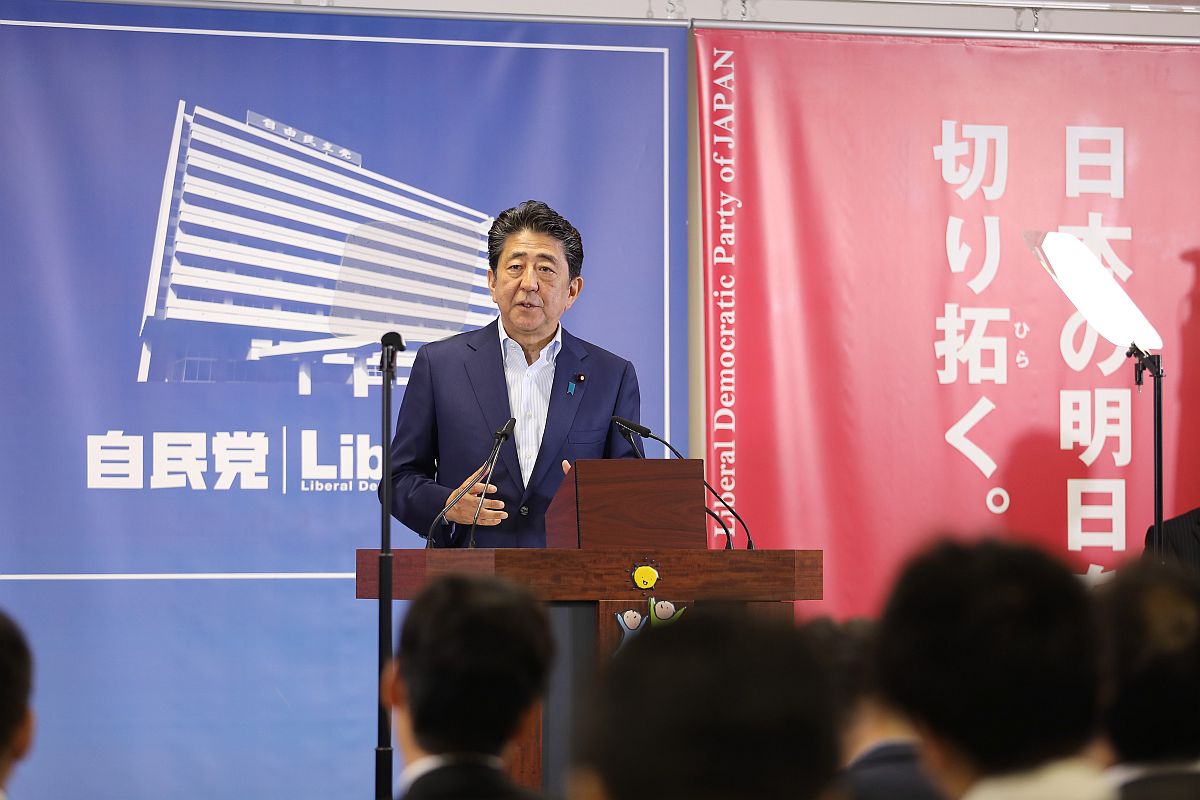Shinzo Abe resigned as Japan’s Prime Minister on Friday owning to his deteriorating health condition.
Earlier in the day, media reports had stated that Abe was planning to step down as the prime minister as he wanted to avoid causing problems to the government due to a worsening of his chronic health condition.
Advertisement
The 65-year-old made the announcement at a press conference in Tokyo.
The development comes after Abe’s visit to a Tokyo hospital twice over the past two weeks, fuelling speculation that his health has deteriorated.
At the press conference, outgoing PM Shinzo Abe said that he needed to be treated for a flare-up of his intestinal disease that led his first one-year stint to end abruptly in 2007. He added that he will receive new treatment but required prolonged care.
Stating that he did not want his illness to get in the way of governance, Abe apologised to the citizens of Japan for failing to complete his term in office.
This is the second time that the Prime Minister is stepping down from his post over a medical issue. In a familiar scenario, Abe had stepped down just one year into his first term, in 2007, over health problems.
He was subsequently diagnosed with ulcerative colitis, which he said, upon his return to office in 2012, was under control with the help of a new medication.
Earlier in the day, the Prime Minister and officials of the ruling Liberal Democratic Party (LDP) held a meeting to discuss his decision to step down following his ill-health, the country’s national broadcaster NHK said in a report.
Abe had been busy in recent months — working 147 days straight — dealing with the Coronavirus pandemic and natural disasters that hit parts of the country earlier this year.
But rumours about the premier’s deteriorating health were amplified by his two trips to the Keio University Hospital in Tokyo within a week.
Abe’s first admission to the hospital on August 17 for what was described at the time as a “health check-up” that lasted for more than seven hours.
On Monday, Shinzo Abe revisited the hospital to receive the results of the check-up and underwent more tests, lasting four hours.
Also that day, he became Japan’s longest-serving leader with the most consecutive days in office at 2,799.
Meanwhile, an abrupt resignation has thrown open various possibilities, including that either deputy prime minister Taro Aso — who also serves as finance minister — or chief cabinet secretary Yoshihide Suga would assume the office in a caretaker capacity.
The ruling Liberal Democratic Party’s (LDP) policy chief Fumio Kishida and the party’s former Secretary-General Shigeru Ishiba are also possible contenders.
A later election within the party would then confirm a full-time successor.











